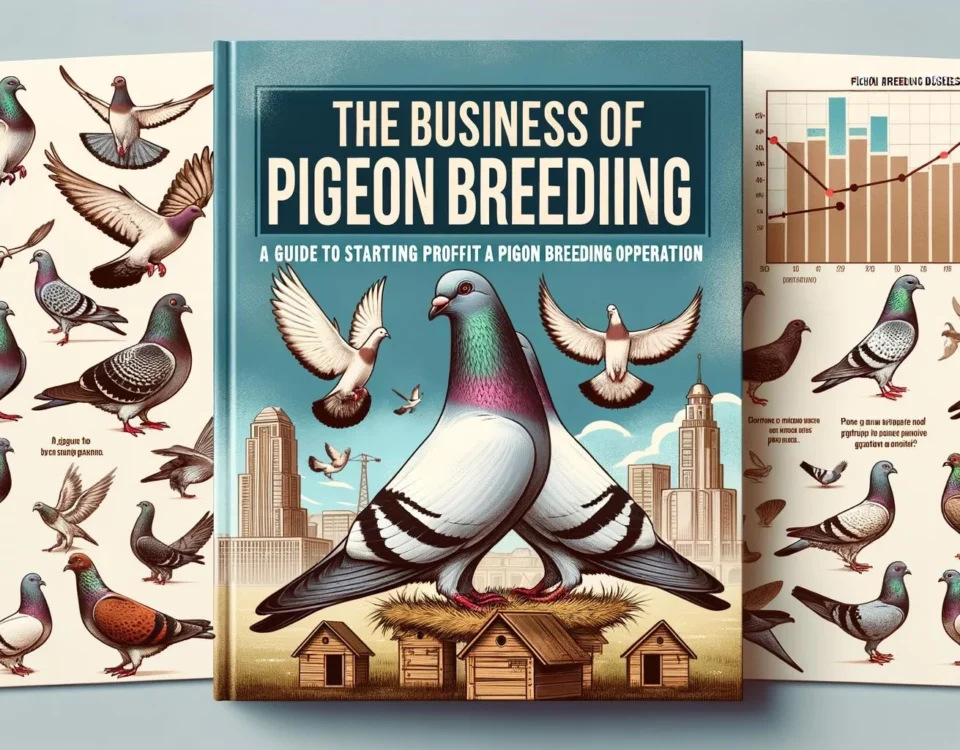Feeding and breeding pigeons is an important aspect of pigeon keeping. Proper nutrition and breeding practices are essential for the health and success of your pigeons. In this article, we will explore key considerations and methods for feeding and breeding pigeons.
Key Takeaways
- Feeding and breeding pigeons require special attention and care.
- Pigeons need a balanced diet that includes a variety of grains, vegetables, fruits, and proteins.
- Proper nutrition is essential for successful pigeon breeding.
- Regular exercise and a clean loft are important for the health and well-being of pigeons.
- The feeding schedule and diet may vary depending on the climate and individual needs of the pigeons.
Feeding Pigeons
Feeding pigeons is an essential part of their care, as it provides them with the necessary nutrients for their overall health and well-being. Pigeons need a balanced diet that includes a variety of grains, vegetables, fruits, and proteins. When choosing a feed for breeding pigeons, it is important to look for a food that meets their nutritional needs.
Feeding breeding pigeons requires special attention and care. Experienced pigeon flyers recommend feeding breeders a ration with a protein level in the 16-18% range. The mix should include a combination of peas and other grains. Additionally, breeders have increased nutritional demands due to the two rapidly-growing youngsters they are caring for. Therefore, it is important to provide them with ample food to meet their needs.
A well-structured feeding schedule helps regulate their food intake and prevent overeating or undernourishment. It is important to ensure that the pigeons have access to fresh water and appropriate supplements to support their overall health. Feeding pigeons according to a schedule not only ensures their physical well-being but also strengthens the bond between you and the birds.
Breeding Pigeons
Breeding pigeons is an activity enjoyed by pigeon keepers all over the world. Proper nutrition and care are key factors in successful breeding. Breeding pigeons have greater nutritional demands, especially during the breeding season when they are caring for their offspring. It is important to provide them with a balanced diet that meets their nutritional needs.
When it comes to pairing up pigeons for breeding, there are two common methods used by breeders. The first method involves locking the pigeons up together for a night, while the second method is isolating them in a small cage. Both methods can be effective, and the choice depends on personal preference and the behavior of the pigeons.
A clean and dry loft is crucial for successful pigeon breeding. It helps reduce the risk of respiratory diseases and other health issues. Proper loft management, including regular cleaning and disinfection, is essential to create a healthy environment for pigeons and their offspring.
Exercise and General Care
Regular exercise is important for the health and well-being of pigeons. Providing them with a space to fly, such as a loft or aviary, allows them to exercise their wings and stay fit. Allowing pigeons to fly for a few hours every day can help improve their overall fitness and breeding rate.
In addition to diet and exercise, general care is also crucial for the health of pigeons. This includes maintaining a clean and dry loft, providing fresh water, and appropriate supplements. It is important to be attentive to their needs and provide necessary medical care when needed to ensure their overall well-being.
By following these guidelines and providing proper nutrition, exercise, and care, pigeon breeders can create a healthy and thriving environment for their birds. This will ultimately contribute to successful breeding and the overall health and well-being of the pigeons.









